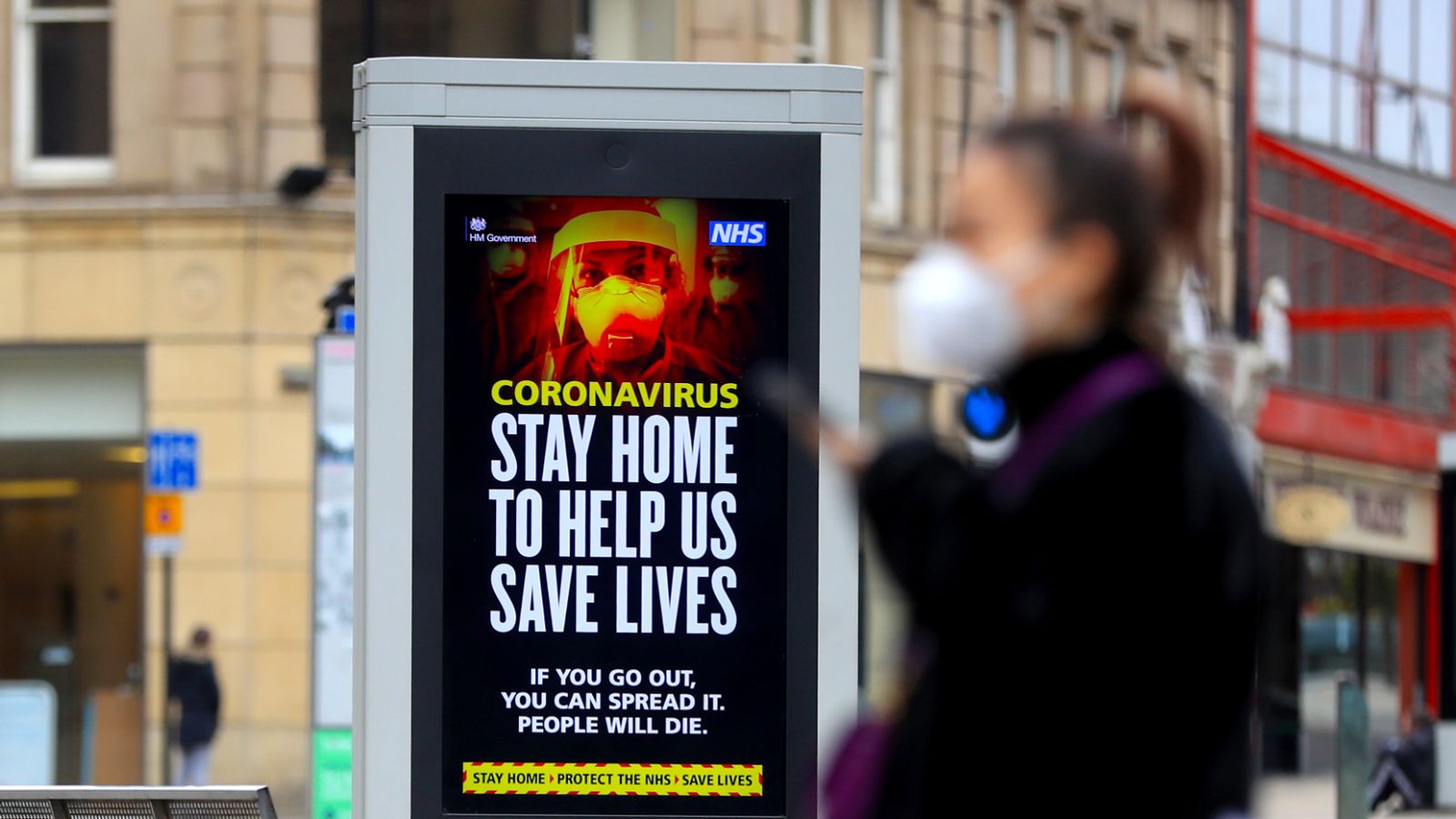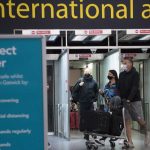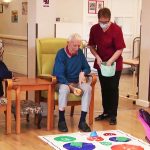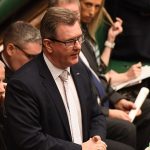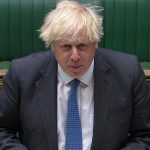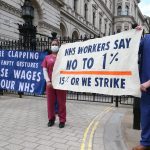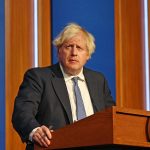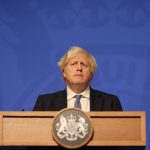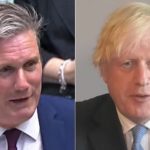Our lives have been governed by rules, restrictions and limits on our freedoms over the past 16 months as the government tried to deal with the worst pandemic we’ve seen in a century.
But in two weeks’ time, the rules will be gone, even if the virus is still going strong.
Boris Johnson announced on Monday that he would lift all rules, except the requirement to self-isolate if you have COVID-19 or are tracked and traced by the NHS.
The unlocking would proceed even with the prospect of new coronavirus cases hitting 50,000 a day by 19 July.
Please use Chrome browser for a more accessible video player
As the prime minister told the public; the risks of the disease has been reduced via mass vaccination, but is far from eliminated.
Sir Patrick Vallance, the government’s chief scientific adviser, went further as he spoke of a rise in cases, hospitalisation and deaths.
“The link between cases and hospitalisations and cases and deaths is weakened but not completely broken and we expect to see some further increase,” he said.
“We’re in the face of an increasing epidemic at the moment and therefore we need to behave accordingly in terms of trying to limit transmission.”
But the announcement made by Mr Johnson went directly against that advice.
Dropping face masks, social distancing requirements and limits on inside gatherings are all measures that only serve to increase transmission, not limit it.
Mr Johnson’s “big bang” approach to re-opening and of shifting responsibility for managing the virus on to the individual rather than the collective is at odds then with some of the scientific advice.
And if Sir Patrick and Professor Chris Whitty, England’s chief medical officer, kept their counsel at Monday’s news conference, others have been vocal in raising concerns about the government’s decisions and “mixed messaging”.
The prime minister said on Monday he was scrapping all restrictions, only to add later in a Downing Street news conference that he didn’t want “people to think this is the moment to get demob happy”.
Professor Stephen Reicher, a behavioural psychologist and an adviser to the government, is of the view that it’s not enough to ask people to take responsibility and then down tools.
“If we are to continue to do things to keep us safe, we need good and clear messaging and I think at the moment all the messaging is telling us there isn’t a problem at all here,” he told Sky News.
“In fact, getting rid of all restrictions sends a very clear message that there isn’t a problem and that in itself is going to affect behaviour in a major way.”
So, as Mr Johnson does away with requirements to wear facemasks, Prof Whitty and Sir Patrick carefully outlined cases where they would wear them.
As Mr Johnson steps away from attempts to reduce transmission, Professor Susan Mitchie, a behavioural psychologist at University College London, warned that “allowing community transmission to surge is like building new ‘variant factories’ at a very fast rate”.
But having followed the scientific advice, the prime minister, with dozens of his own backbenchers breathing down his neck, has taken the view that this is the time to lift COVID rules.
“We must be honest with ourselves that if we can’t reopen our society in the next few weeks, when we will be helped by the arrival of summer and by the school holidays, then we must ask ourselves when will we be able to return to normal?,” he said.
“And to those who say we should delay again; the alternative is to open up in the winter when the virus will have an advantage or not at all this year.”
The prime minister promised a “cautious but irreversible” route out of lockdown, but with the Delta variant now spreading uncontrollably amongst the unvaccinated population, it is a gamble.
When I asked Prof Whitty at the news conference whether there would have to be more restrictions this winter, he told me “this winter may be very difficult for the NHS” given the transmissibilty of the Delta variant – elegantly dodging the questions around the reintroduction of specific measures.
The prime minister is determined to press on, but it opens up risk to him after a good run on the back of the vaccine rollout.
Please use Chrome browser for a more accessible video player
There is an obvious split between politicians and scientists which gives Labour leader Sir Keir Starmer a fissure to mine.
Branding Mr Johnson’s approach “reckless” and calling for a more “balanced approach”, Sir Keir has sided with the unions, and the majority of the public over the wearing of face masks.
Mr Johnson, the man who is renowned for being in tune with the electorate, risks being off the pace of public opinion.
Having micromanaged so many aspects of people’s lives for so long and put them through two long lockdowns, to down tools and bow out in such an abrupt manner could backfire.
Gavin Barwell, a former MP who was Theresa May’s chief of staff, argued not making mask-wearing compulsory on public transport is a mistake.
“If you want people to resume normal life, you need to make it feel as safe as possible for them to do so,” he said.
In two weeks’ time, the choices and the responsibility for managing this virus will be passed from ministers to all of us.
Please use Chrome browser for a more accessible video player
Eyeing the obvious risks, Mr Johnson has reverted to the libertarian instincts that he has displayed at a number of critical moments in this pandemic – from the reluctance to introduce a “circuit breaker” last autumn, to only calling off a Christmas relaxation of restrictions at the last minute in December.
But the pandemic is far from over and for some scientists and politicians the ditching of all the restrictions and rules in two weeks’ time is anything but cautious.
And as for irreversible? It is a promise Mr Johnson should never have made in the face of a virus that he cannot hope to predict or control.
So even as the government steps out of our lives, whether ministers will have to step back in is still the big unknown.
